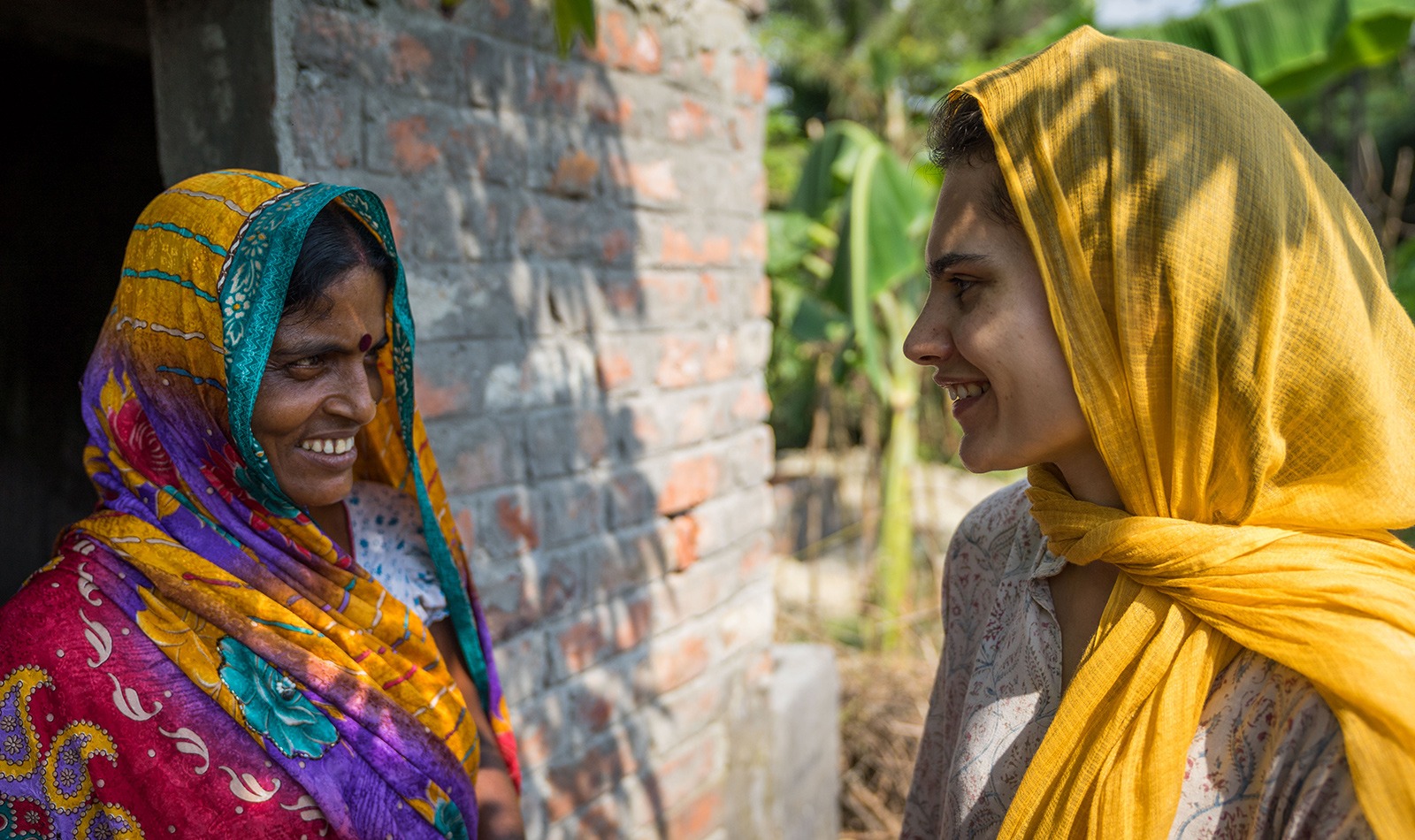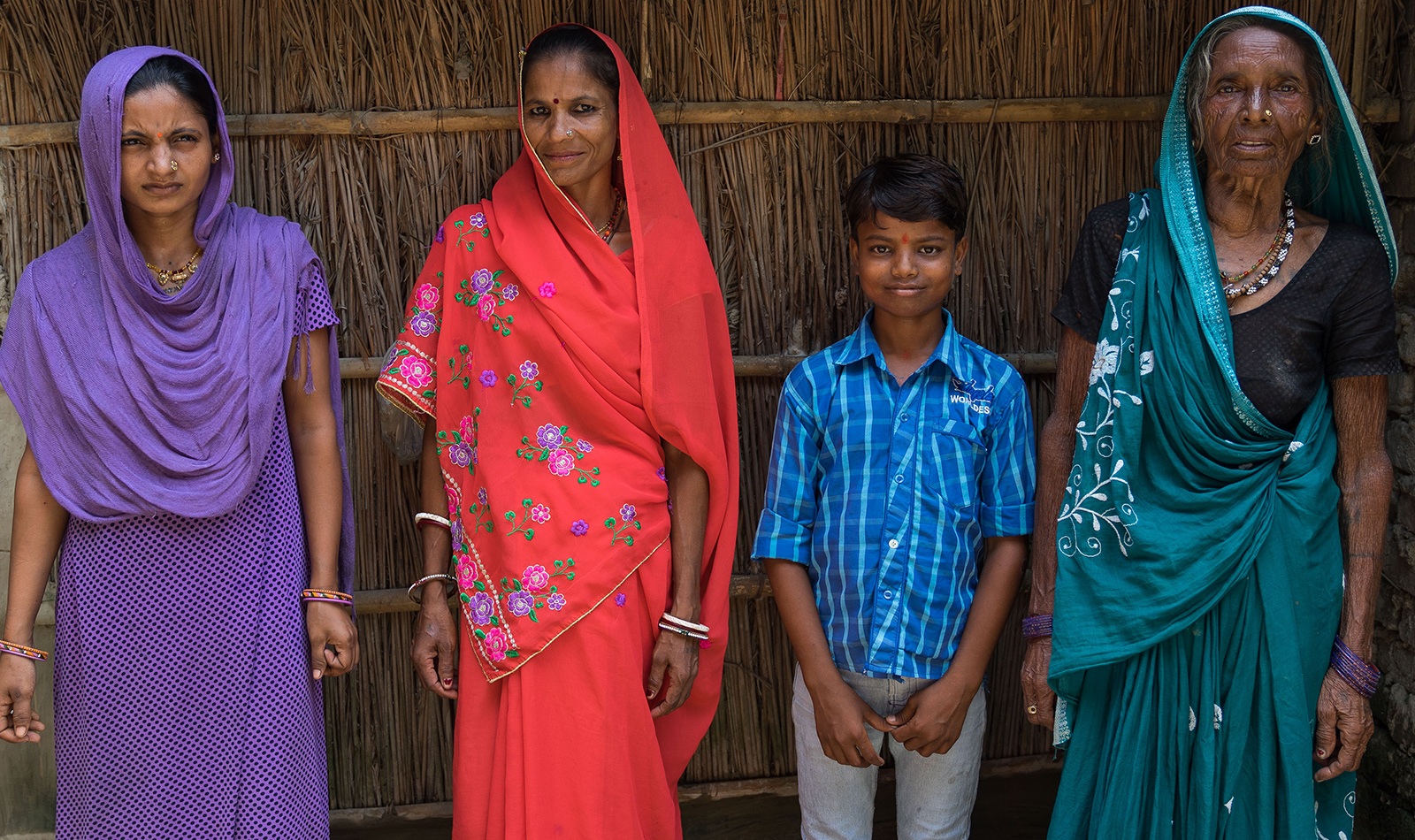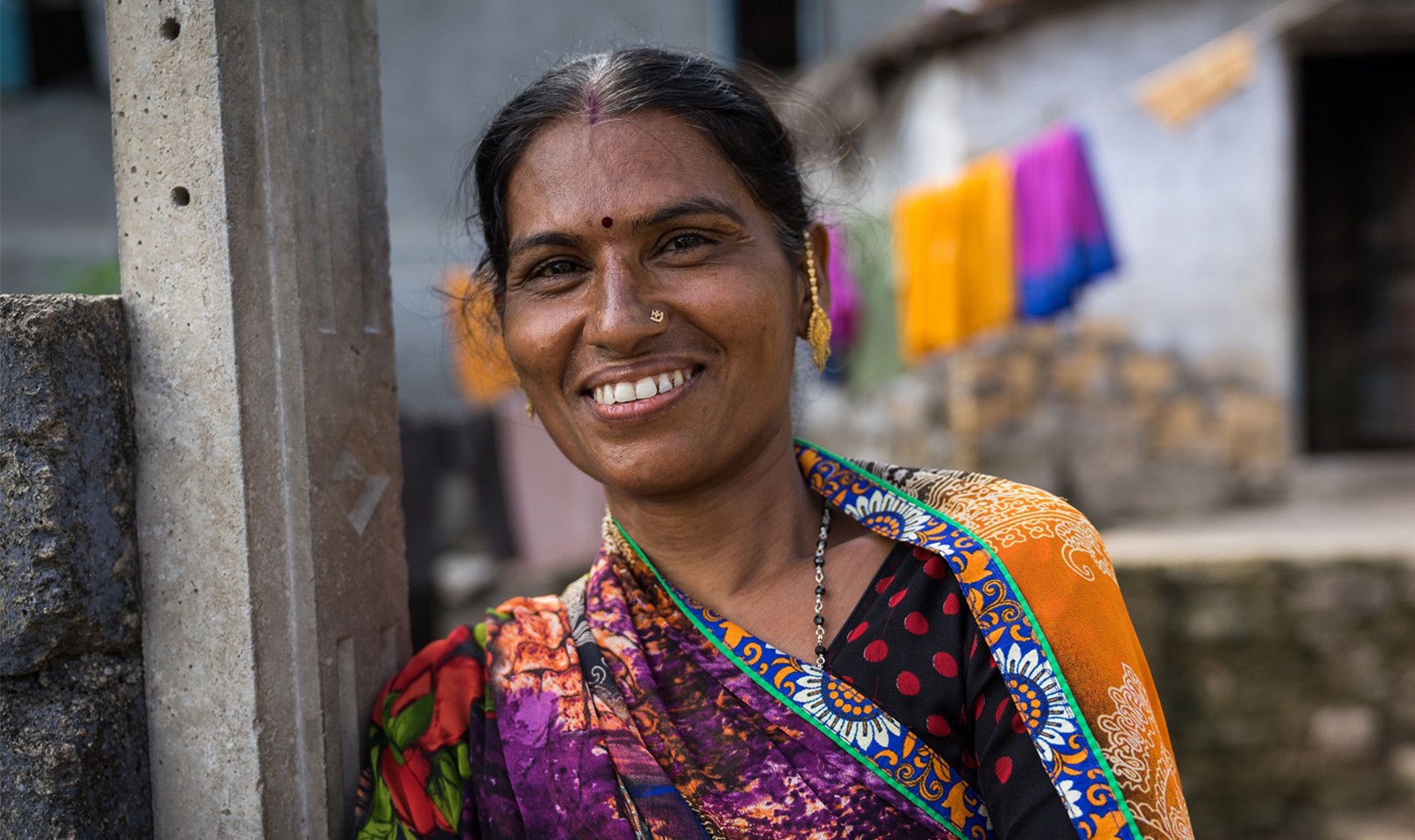Happy World Water Day!
This year we’re highlighting the Aga Khan Development Network Comprehensive Sanitation Initiative in India. In April 2015, Aga Khan Development Network (AKDN) agencies, the Aga Khan Foundation, the Aga Khan Rural Support Programme, the Aga Khan Agency for Habitat and the Aga Khan Health Services launched the AKDN Comprehensive Sanitation Initiative, which brings together their expertise in the fields of water, sanitation, community mobilization, sanitation infrastructure and health to tackle this challenge in India. The Comprehensive Sanitation Initiative is supporting the Government of India and is in 6 states (Bihar, Gujarat, Madhya Pradesh, Maharashtra, Uttar Pradesh and Telangana) where it is facilitating access to sanitation for 100,000 families as well as improving water, sanitation and hygiene in 538 schools and for communities in Patna and Hyderabad through the promotion of community toilets.
Meet Sudhanshini and Her Family
“It’s made such a difference to my life.”
Sudhanshini lives with her family in Vishanpur Bakri tola in Bihar. Aga Khan Rural Support Programme (AKRSP) staff came to their village about a year ago and conducted a study to see which households have toilets and whether or not they are using them. When families in the village were informed about the risks of open defecation, they were open to the idea of building toilets. While the families in the community had the preconceived notion that building high quality toilets would take a toll on their budget, AKRSP let them know that it would only cost them about 18,000 rupees ($275.00), some of which they could recover through a government subsidy. Building the toilets only took four days and it has created a sense of hygiene, safety and security for this family.

Sudhanshini talking with an AKF staff member outside of her house.
“It’s made such a difference to my life. I had never in my whole life had access to a toilet and always had to rely on going outside to relieve myself. When I was a young woman and later when I became pregnant going to the toilet was really difficult and I’d have to wait till it got dark or early in the morning to go because I’d be embarrassed if others saw me. I remember when I was expecting my sons I’d be in a lot of discomfort because I couldn’t go to the toilet as often as I needed to. Now that I’m older it’s very convenient to have the toilet nearby as I can’t walk such long distances anymore and I’m glad that my daughter-in-laws and grand-daughter don’t need to wait to go to the bathroom like I did when I was young.”
Read Sudhanshini’s full story here.
An Ambitious Goal
In 2015, Indian Prime Minister Narendra Modi set a countrywide goal to completely eliminate the common practice of open defecation in India by 2019. The plan is in alignment with the United Nation’s Sustainable Development Goals, specifically Goal 6, which focuses on ensuring clean water and sanitation to all by 2030. Rather than focusing on the number of toilets built, India’s plan is to shift people’s habits, laying the foundation for sustainable change. The initiative has already seen quite a bit of success in its first two years with rural sanitation coverage increasing by 18% from 42% in 2015 to just over 60% today.
The Aga Khan Development Network (AKDN) has been working in various regions of India to ensure that families are involved with both building an affordable toilet to fit their own needs and teaching communities about the health benefits of using one. To learn more about how this initiative works, be sure to read this recent article in the Stanford Social Innovation Review.
This World Water Day, we’re meeting several families whose lives have been changed by taking their health in their own hands. Travel with us to the fertile plains of Bihar to see how building their own toilets has increased their quality of life.
Meet Sumitra and Her Family
“I’m so glad that my family have access to clean water and a clean toilet and I’ve noticed that we all feel healthier.”
Sumitra has quite the full house. She lives with her husband as well as her parents-in-law and brother-in-law’s family, all in a small two-room brick house. Joining her village water user group that focused on managing community drinking water inspired her to build a toilet for her large family. Her husband’s family had the mindset of “Why fix it if it isn’t broken?” but stressed that until recently they didn’t realize how risky their behavior was. They were able to build the toilet with the help of a government subsidy as well as support from the Aga Khan Development Network.

Sumitra and her family in front of their toilet.
“Every family member has been using it and commenting on how it has made their lives easier! My mother-in-law often tells us how much happier she is now that she doesn’t have to walk out to relieve herself and has even taken on the responsibility of checking that the toilet is working and clean. My son and husband too tell me that they’re glad we have built a toilet as it’s much more convenient and it feels cleaner to them. For me, I’m so glad that my family have access to clean water and a clean toilet and I’ve noticed that we all feel healthier. Although it’s small our toilet has made a big change to our lives.”
Read Sumitra’s full story here.
Meet Gauri and her family
“At the beginning, many of them think like I did – that it will be expensive and is not that important – but I tell them about my experience and how it’s made our lives much better.”
Gauri is an Anganwadi worker who lives in the Gir Somnath district with her three daughters. Gauri and her daughters never had access to a toilet and faced many difficulties going to the bathroom, having to wait the whole day till it became dark to relieve themselves at risk to their safety. When her daughters were young, she would walk with them; but as they grew older they were more likely to be harassed. Because of their caste they also had to make sure that they didn’t defecate close to an upper caste landowner’s land, making it even more difficult for them. Working with the Aga Khan Development Network, they learned they could build an affordable toilet in their existing home. As an Anganwadi worker, she is also inspiring other members of her community to also build toilets by stressing the affordability and ease of construction.

Gauri standing in front of her home.
“Now that I fully understand the benefits of having a toilet and washing hands before meals and after using the toilet I am encouraging all the children who come to the Anganwadi center to wash their hands and encouraging their parents to construct toilets so that they and their families do not have to defecate in the open. At the beginning, many of them think like I did – that it will be expensive and is not that important – but I tell them about my experience and how it’s made our lives much better.”
Photo at top: Audesh Kumar building a new toilet in a village in Bihar, India. (AKDN/Christopher Wilton-Steer)